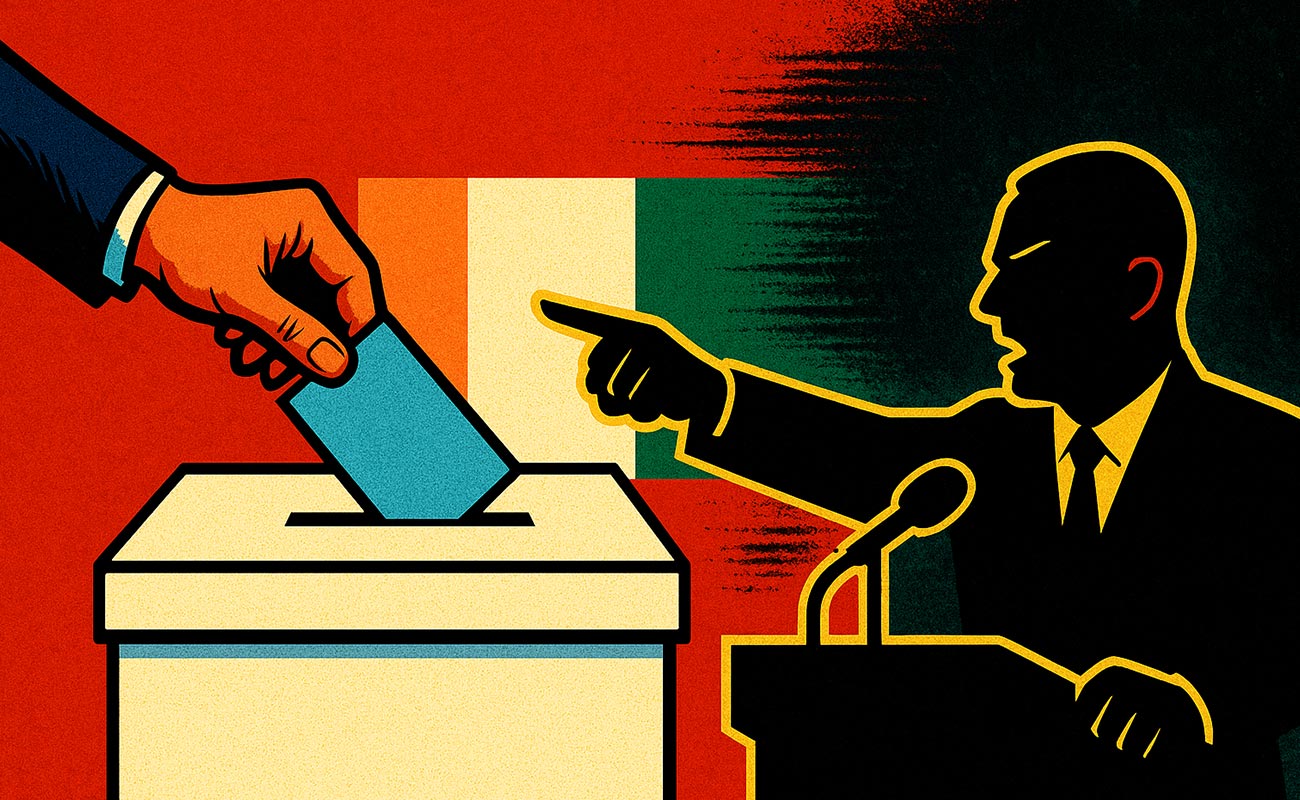
By Dr Jeslyn Lemke
The recent violent crackdowns on opposition protests in Abidjan on Oct. 12 by state police forces is the final signal president Alassane Ouattara of 15 years is not running a free and fair national election in Cote d’Ivoire.
With only a few days left before the Oct. 25 election, Ouattara has made it abundantly clear he will crush any civic opposition. In fact, the past 12 months in Cote d’Ivoire features a running list of very public attacks on the country’s opposition candidates, media, and political demonstrations. Three main opposition candidates for the presidency, Tidjane Thiam, Laurent Gbagbo, and Pascal Affi N’Guessan, were struck from the ballot this year by cabinet officials on several technicalities. This was followed by the government then banning any protests supporting those same politicians.
Each time, Ouattara’s cabinet officials issued convenient reasons for such crackdowns. Yet after months of squashing any attempt to have legitimate candidates on the national ballot, harassing opposition journalists publishing contrarian viewpoints and aggressively canceling public demonstrations against Ouattara’s Rally of Houphouëtists for Democracy and Peace (RHDP), it is clear Ouattara’s administration has crossed into authoritarian practices.
As a refresher, here are some common traits of an authoritarian regime, according to the Social Change Library;
- marginalize your political opponents,
- actively suppress free speech and the right to assembly,
- destroy the checks and balances of a healthy democracy such as voting in elections and the right to publish opposing viewpoints,
- encourage violence to advance political goals.
- Spread lies and rumors about your opponents (this often manifests as disinformation on social media, a rising problem among much of the political coverage of Cote d’Ivoire’s election both this year and in 2020)
RHDP cabinet officials have leaned into virtually every category of this list this past year. The recent crackdowns on protests are no exception. News reports showed frustrated protestors telling similar stories of police attacking them with tear gas when gathering to support the new Common Front, a coalition comprised of the Democratic Party of Ivory Coast (PDCI) and the African People’s Party (PPA-CI). Additionally, RFI reported that state police attacked journalists covering the protests, by confiscating and destroying cameras and images. Meanwhile, Ouattara’s administration held an enormous demonstration in Daloa the same day of Oct. 11, where he was openly celebrated by hundreds of supporters, free of any security crackdowns.
The French media operating in Cote d’Ivoire has historically showed favorable coverage to Ouattara’s economic policies, painting him in a positive international light. Despite the yawning collection of human rights grievances this year, both France 24 and Agence France-Presse published news articles within just the past week lauding Ouattara’s progress in bringing new infrastructure to Abidjan, heavy with quotes from approving citizens.
“The bridge has become an iconic image for Abidjan, Moustapha dubs it a “magnificent holiday attraction for tourists and families,” read an AFP news release on Oct. 21, just 10 days after the national state police arrested 237 protestors opposing Ouattara’s presidency.
Amnesty International issued a report in early October calling for the Ivorian government to respect citizens’ right to peacefully assemble.
It isn’t particularly revolutionary to point out that Cote d’Ivoire’s political system is entering into authoritarian territory. In 2010-2011, former president Laurent Gbagbo refused to leave the presidency after months of using the same repressive tactics seen today against then-opposition candidate Ouattara. Multiple media and political science scholars have studied democracy as an entity in West Africa; as the 17 countries in francophone Africa were freed from French colonial power in the 1960s and 1970s, their newly formed governments worked to create “democratic governments,” an exercise which scholar Marie Soleil-Freire wrote was only partially successful (Frère, 2015; Tettey, 2001). Governments in many francophone West African nations tend to function more as semi-authoritarian regimes masquerading as democracies, she contends.
Saturday, October 25 is pivotal for Cote d’Ivoire’s future as citizens head to the polls. With disinformation in abundance online, agencies like REPPRELCI are doing their best to educate the public in rural parts of the country on holding peaceful elections and peaceful commentary online. Marabouts, pastors and community mayors have issued radio statements calling on the public to maintain the peace as well.
Frère, M.S. (2015). Francophone Africa: the rise of ‘pluralist authoritarian’ media systems? African Journalism Studies, 36(1), 103–112. doi:10.1080/23743670.2015.100817612.
Tettey, W. J. (2001). The media and democratization in Africa: contributions, constraints and concerns of the private press. Media, Culture & Society, 23(1), 5-31. https://doi.org/10.1177/016344301023001001
